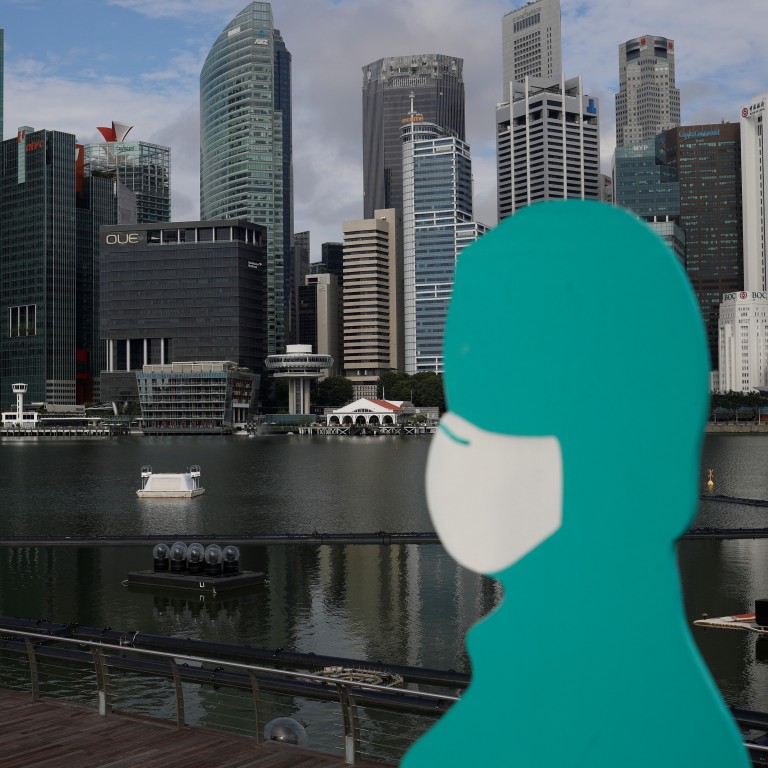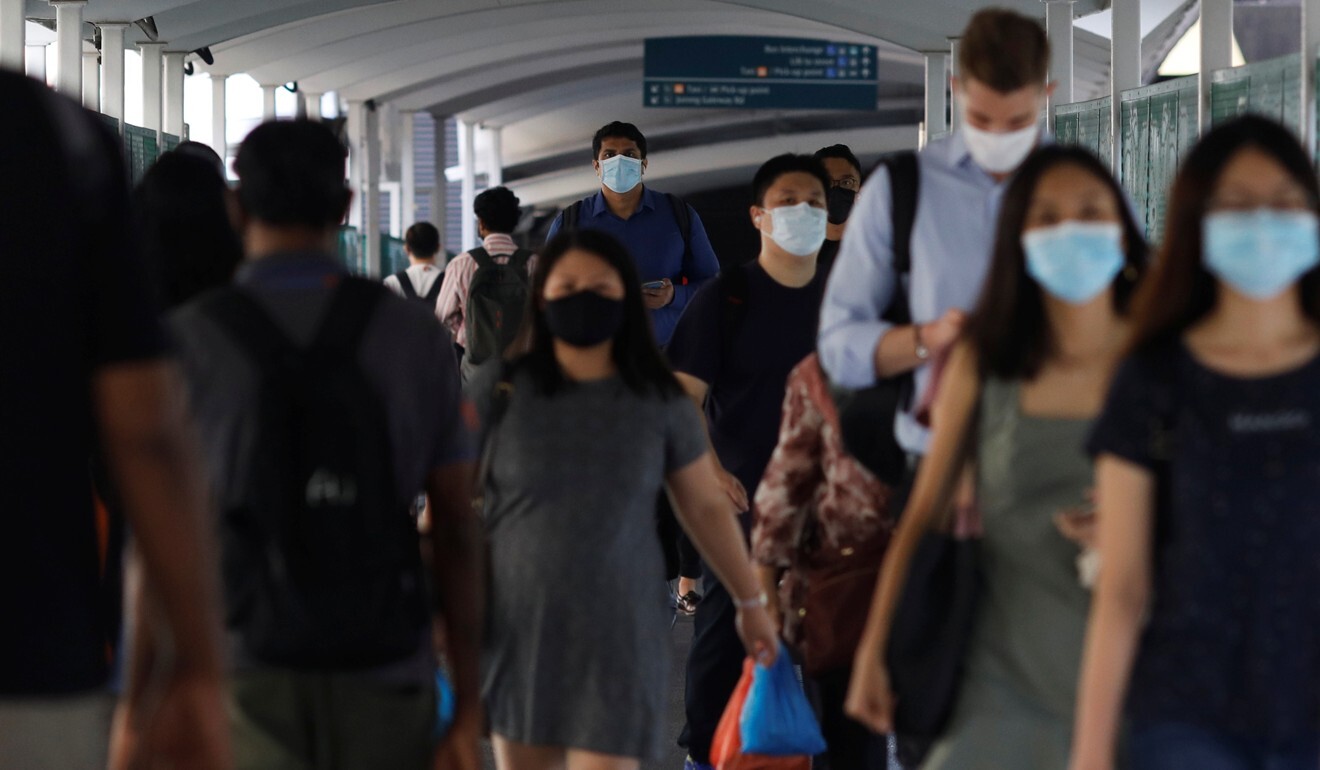
Singapore reimposes restrictions in latest speed bump for ‘living with Covid’ plan
- Starting on Monday, diners will be limited to groups of two, and employers must allow staff to work from home if possible
- While the authorities are keen to relax rules as part of their blueprint, they do not want more deaths to be the price of reopening
The restrictions kick in on Monday and will last for a month, until October 24. Their resumption comes after authorities in the city state on August 10 allowed residents to eat in at restaurants, following the lifting of a previous round of restrictions.
The government had upped workplace capacity to 50 per cent of employees on August 19 as part of a slew of measures linked to a so-called living with Covid blueprint that was being operationalised following a successful vaccine roll-out.
Singapore has one of the world’s highest vaccination rates, with 82 per cent of its population fully inoculated.
Gan Kim Yong, co-chair of the virus task force, said in a Friday press conference that the reimposition of restrictions was a “very difficult decision” because of the impact on businesses and people.
Singapore’s pivot to Covid-19 home recovery baffles some residents as cases surge
He acknowledged that it would not immediately reduce the number of daily infections, but said it would “allow us to slow down the speed of increase and avoid overtaxing our health care workers”.
Health minister Ong Ye Kung said this move might look like Singapore was trailing behind European countries that had reopened and were living “quite normal” lives, but he added that those countries “paid a huge price in human lives, mostly last year”.
That was something Singapore would “do whatever we can to minimise, which is why we are opening up only after we have vaccinated the vast majority of our population, so we will ride out this wave differently, safely, and successfully”.
The city state of 5.7 million people is experiencing a doubling of new infections every eight days, instead of the 10-day span it had previously predicted.
On Friday, it reported 1,650 new cases, its highest daily figure so far. Of the 1,120 people in hospitals, 163 needed oxygen supplementation and 23 were in the intensive care unit (ICU).

Going by the current trajectory, authorities said daily case numbers could hit 3,200 next week and exceed 6,000 the following week, threatening to overload the country’s health care system.
Weeks earlier, Ong had said the numbers were doubling every 10 days and would hit 3,200 a day before tapering off.
On Friday, he said the pace of increase had slowed slightly but infections were not decreasing, adding that new cases should still hit that figure but “we don’t know whether it gallops there, or whether it slows down and reaches there slowly. This is something we need to observe.”
Coronavirus: Malaysia and Singapore to mutually recognise vaccination records
Ong described this as “tapping on the brakes” to spread infections over a longer period of time so the health care system could cope with those who were severely ill.
The Singapore authorities also said they were looking to ramp up health care capacity so 5,000 new infections a day could be handled.
Ong said they were also concerned about the number of residents who had fallen seriously ill or died, pointing out that there had been a higher incidence of both among unvaccinated seniors.
He added that ICU numbers tended to lag rising infections by 10 to 14 days, so an increase was expected in the coming days.
The authorities are also urging people to recover at home and not flood hospitals if they test positive for Covid-19 but are asymptomatic.

04:47
Hong Kong should follow Singapore’s lead and drop ‘zero case’ approach to Covid-19
Home recovery was already the default for Covid-19 patients aged 69 or below who are fully vaccinated, do not have any serious illnesses, and are not living with anyone older than 80.
The scheme had, however, met some challenges, with residents taking to social media to complain about what they said was a lack of official communication after they had tested positive for the virus, leaving them confused about what to do. On Friday, the government set out in infographics the steps that needed to be taken once residents tested positive, if their household members tested positive, or if they were served with a quarantine order.
During the press conference, the government also said it was still exploring whether it could set up more vaccinated travel lanes – Singapore now allows travellers from Germany, Brunei, Macau, Hong Kong, China, and Taiwan to enter without quarantine – and it was also consistently updating the statuses and quarantine requirements of other countries based on risk assessments.
The authorities also said they remained committed to the Covid resilience plan, and the restrictions announced today were just a temporary measure.
“We are still at the preparatory stage and have not reached the stage where Covid-19 can be considered as endemic,” the task force said. “In this journey towards living with Covid-19, we have to make continual adjustments in our measures to protect our health care system, and ensure it is not overwhelmed.”

